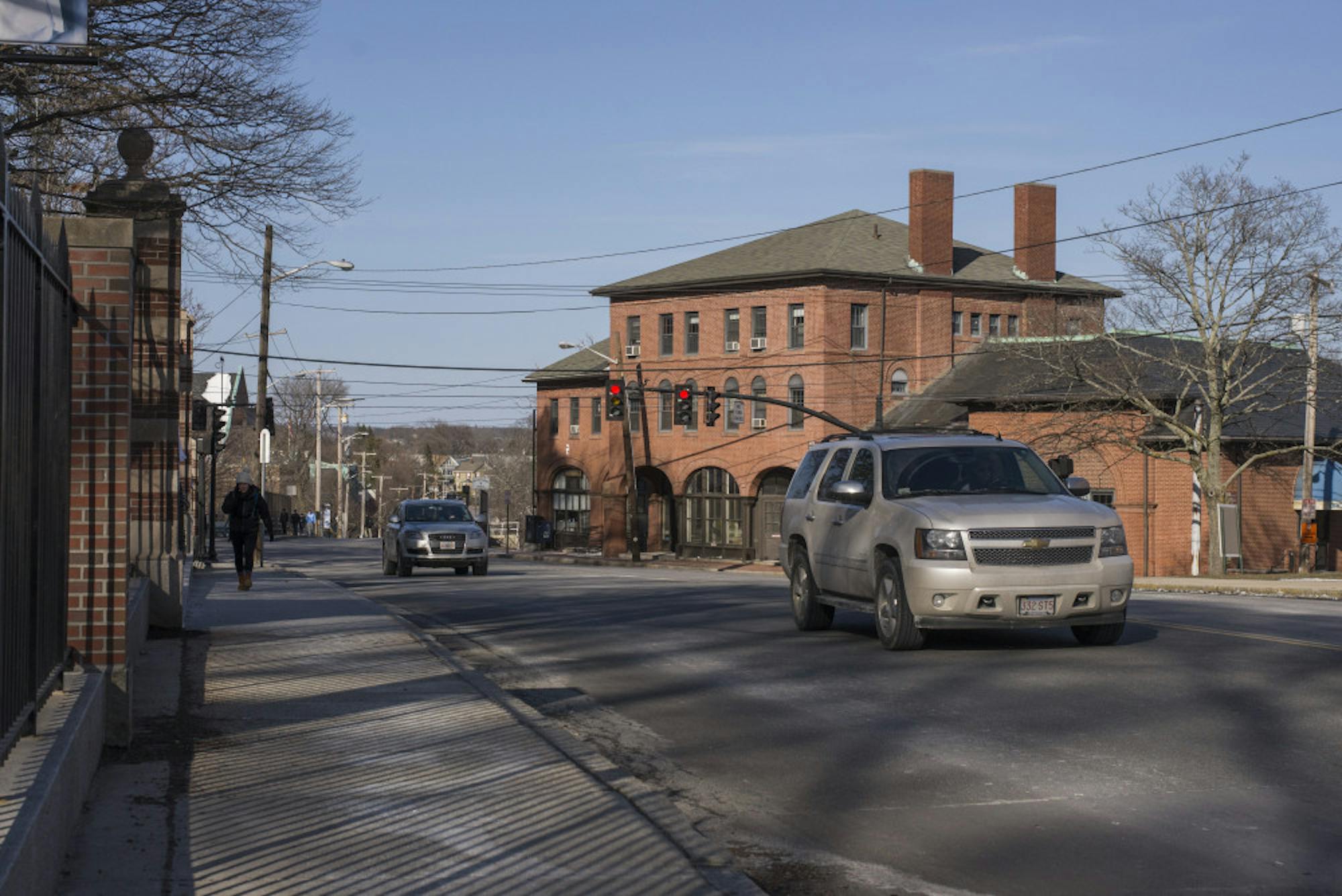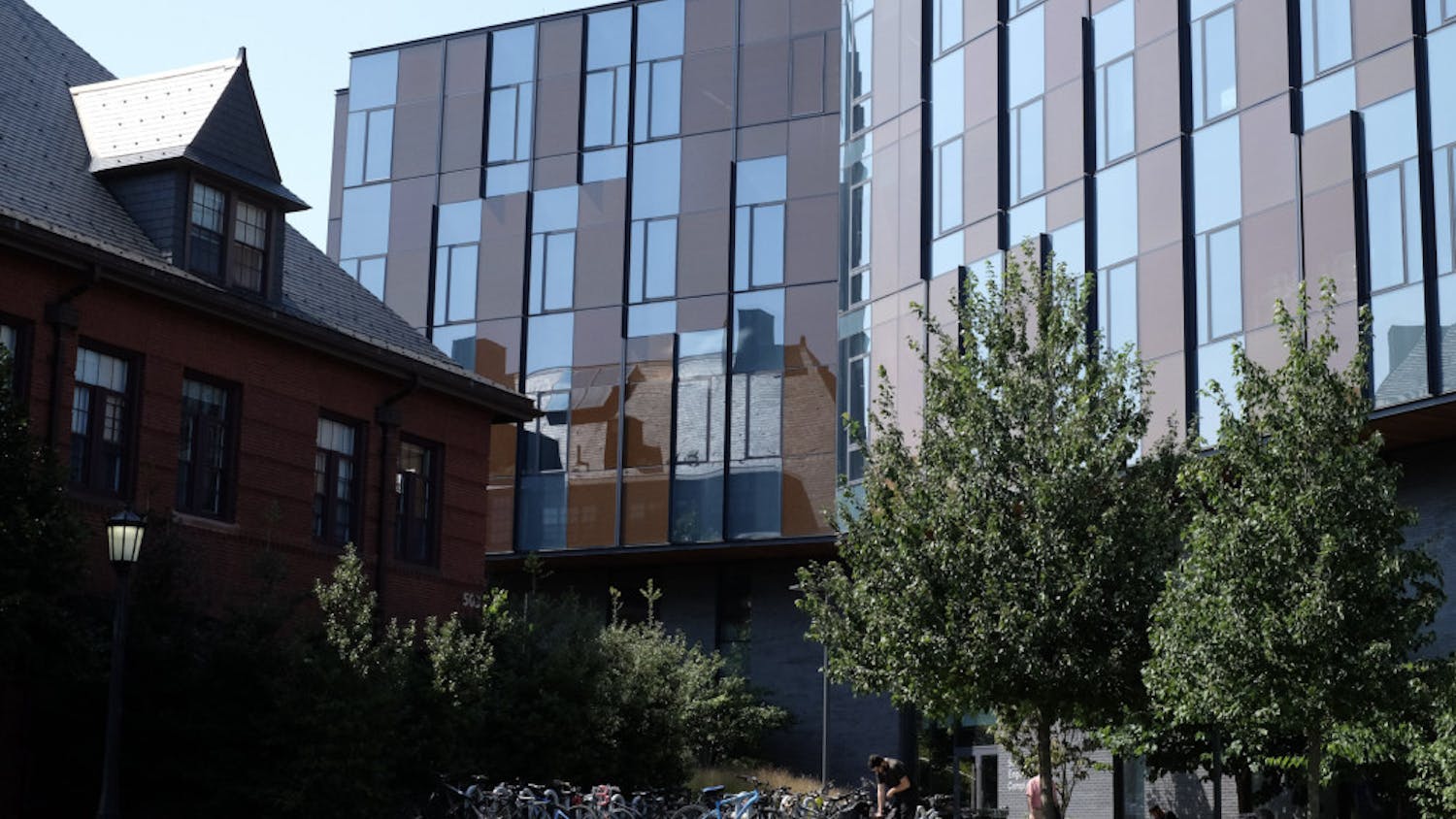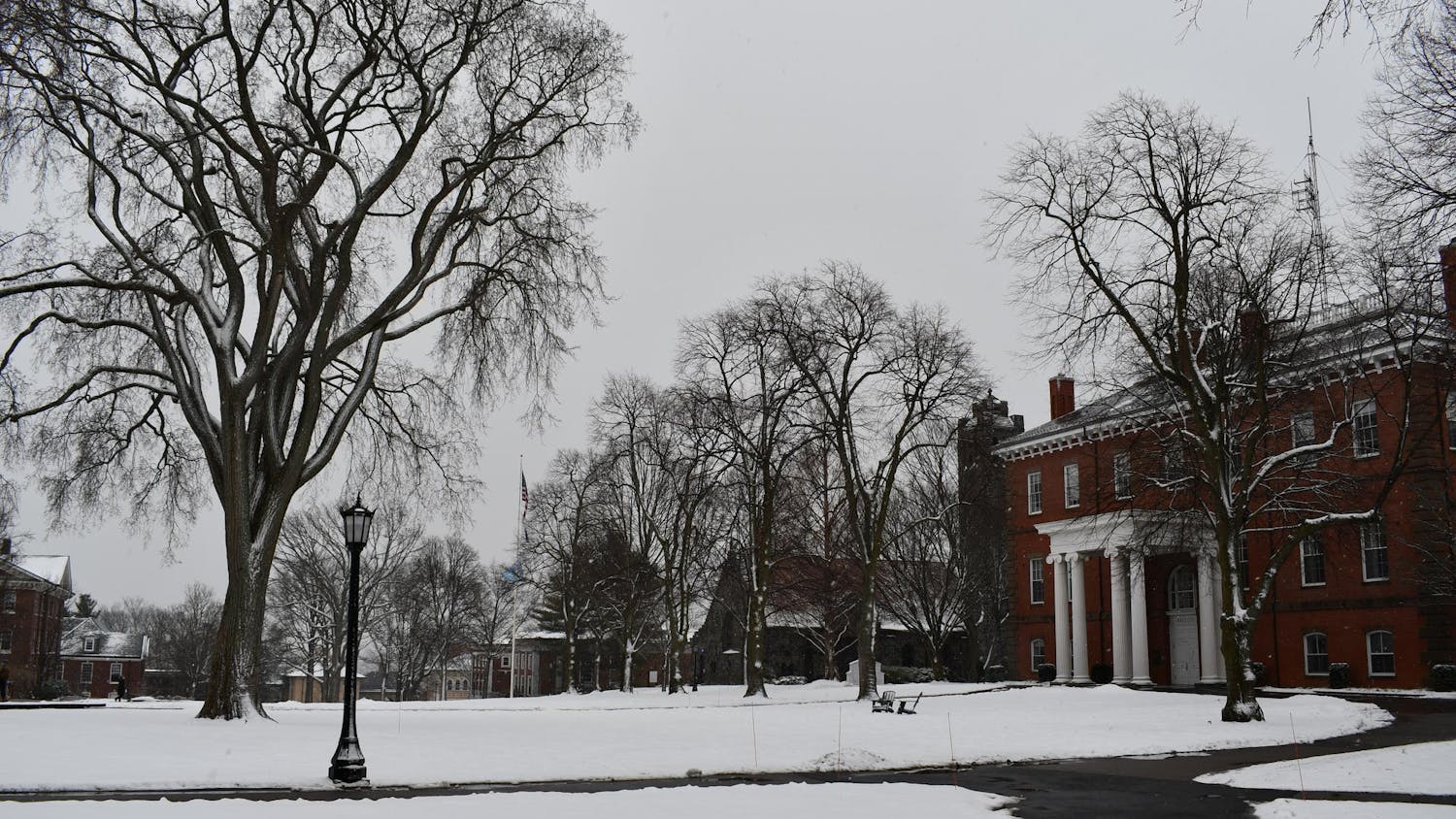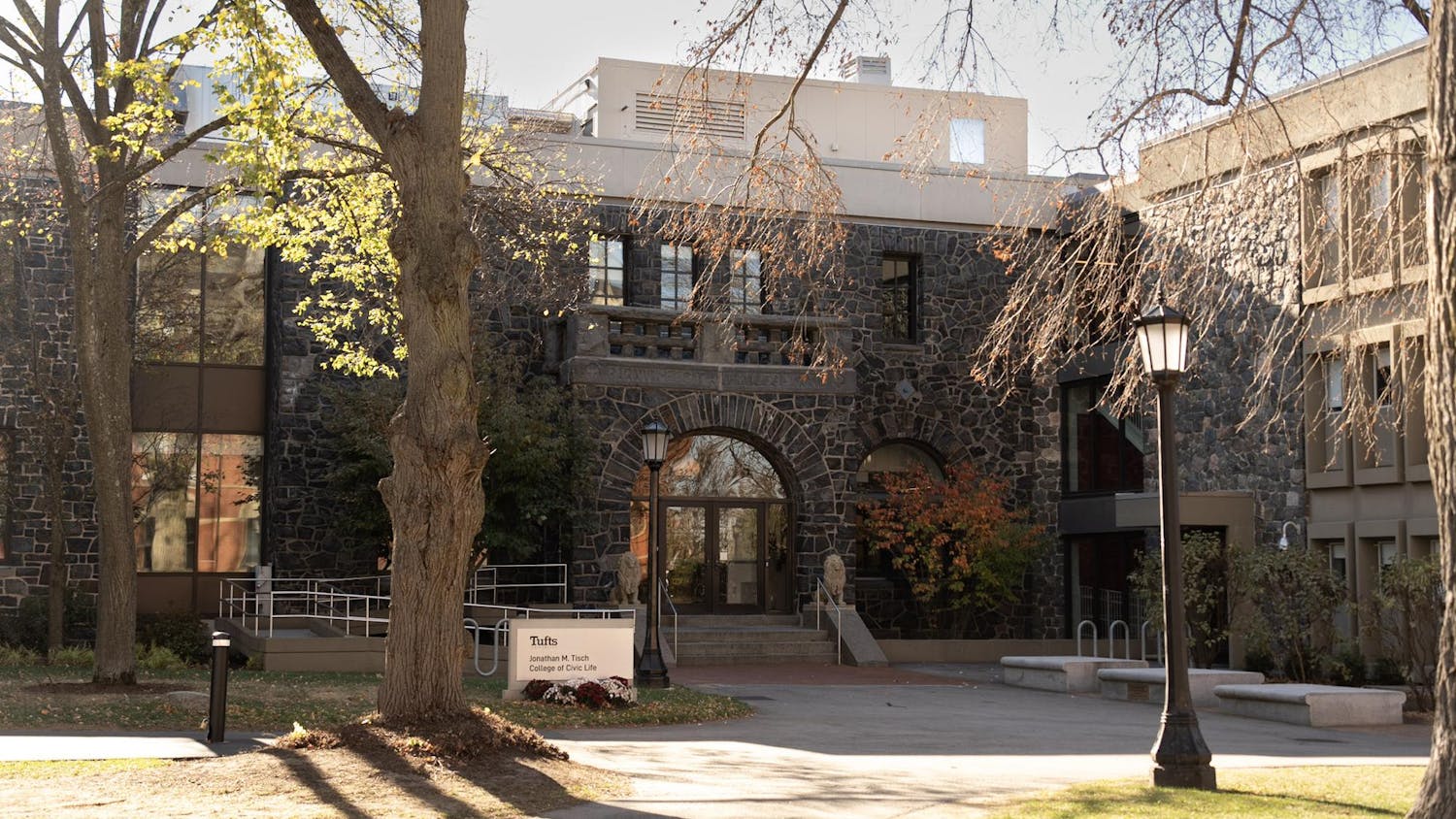The Tufts Environmental Studies Program held its first Hoch Cunningham Environmental Lecture of the semester on Jan. 16, featuring Tim Wise and the findings of his new book titled “Eating Tomorrow: The Battle for the Future of Food in the Climate Crisis” (2019). Hosted in Curtis Hall, the event was open to community members, students and faculty, and presented the urgency of climate change as it relates to the demands to change agriculture and the production and marketing of food.
According to Sara Gomez, the Assistant Director/Program Manager of the environmental studies program, the topic of the lecture is timely with current issues and also coincides with many programs that are occurring at Tufts, including the academics of the food systems and nutrition minor, faculty research on food production and labor, and community outreach with the Tufts Food Rescue Collaborative.
Wise is a senior researcher at the Small Planet Institute, where he directs the Land and Food Rights Program, and a senior research fellow at Tufts University's Global Development and Environment Institute, in the Globalization and Sustainable Development Program from 2000–2016. He explained that his book took five years to complete, conducting research in the U.S., Mexico, India and several southern African countries.
Wise deemed the question, ‘how do we feed the world?’ as flawed, juxtaposing U.S. overproduction of food against the 800 million people worldwide who suffer extreme hunger every year. He explained that individual workers who are growing food for commercial profit often go hungry, while policymakers ignore low-cost food solutions.
According to Wise, agribusiness profits drive these inequities, and the role of these industries are environmentally destructive.
“The way we’re producing our food on chemical-intensive, industrial-scale farms is quite literally devouring the natural resource space — soil, water, seeds, climate — on which future food production happens,” he said.
After showing a picture of a farmer in Malawi, Wise explained that after the first draft of an extreme policy, corn farmers were not allowed to call their kernels "seeds," but rather had to call them "grains," because they hadn’t been commercially certified.
According to Wise, after he broke the news of the connection between the Malawi seed policy and Monsanto, serious revisions occurred. In response, a farmer's rights policy is currently being developed, which guarantees farmers the rights to save, exchange and sell their seeds.
In researching Zambia, Wise stated that 78%of the rural population of Zambia lives in extreme hunger, a percentage which has not moved in spite of the tripling of corn production. According to Wise, an excess of fertilizer and the wrong type of fertilizer, which are sold for commercial gains, are the causes of many of Zambia’s problems.
The future for food, according to Wise, is most urgent in Africa because of the impact and projected impact, of climate change in the area.
Wise stated that the "Green Revolution for Africa," which promoted commercial seeds and chemical fertilizers, was counterproductive, and instead a diversity of crops, intercropping a variety of plants and composted manure are needed to increase the soil’s fertility and productivity.
Wise emphasized the impact of climate change on agriculture and food production everywhere, stating that two out of the six places he researched were underwater due to climatic events, including Iowa.
In Iowa, Wise highlighted the research of Matt Liebman, an Iowa State University professor whose research concluded that a third rotation of the agriculture land would have large positive environmental impacts — including a reduction of fertilizer use by 85%, a reduction of herbicide use by 97% and an elimination of water pollution and runoff. Although this would improve soil fertility and reduce erosion, Wise asserted that it was not implemented by industrial farms because it led to less profits for agribusinesses.
In response to the lecture, undergraduate Caro Fett stated that the lecture emphasized to her the connections and weight of money in the political sphere.
“The decision-makers are not making decisions based on what's best for farmers or even the majority of their nation — they’re really pawns of the agribusiness," Fett, a senior, said.
However, Wise also discussed the hope of new energy to address these problems. He cited participatory plant breeding, agroecology projects, women owning land and the Green New Deal.
“If the system can be put in place to make incentives work to encourage a different kind of farmer, as Matt said, another Iowa is possible. And as farmers all over Africa told me, another agriculture is possible,” he said.
Correction: This article has been updated to more accurately reflect the host of the Hoch Cunningham Environmental Lectures. The host of the lecture series is the Tufts Environmental Studies Program and not the Tufts Institute of the Environment.
Research presents need to transition to ecological agriculture

The intersection of Boston Avenue and College Avenue is pictured on March 12.





